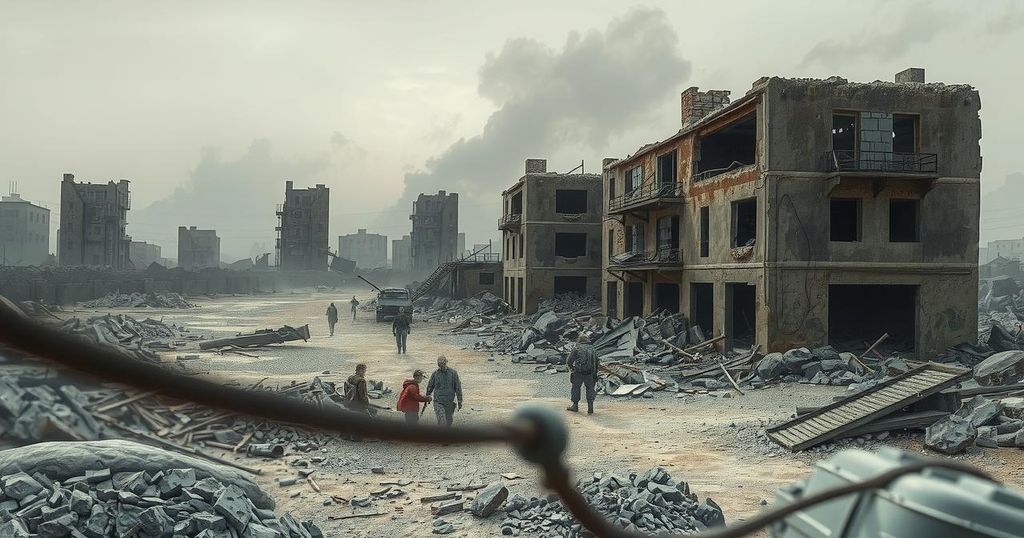Sudan’s Civil War Approaches a Pivotal Shift as Military Landscape Changes

Sudan’s civil war sees a turning point as the Sudanese army regains territory from the RSF, capturing the presidential palace and central bank. Severe human rights violations persist on both sides, exacerbated by international neglect and lack of humanitarian aid, while South Sudan faces threats of renewed conflict amid these developments.
The ongoing civil war in Sudan may signal a pivotal shift, as military actions by the Sudanese army led by Gen. Abdel Fattah al-Burhan have altered the battlefield dynamics. After capturing the presidential palace in Khartoum from the Rapid Support Forces (RSF), controlled by warlord Gen. Mohamed Hamdan Dagalo (Hemedti), the Sudanese military has regained significant territory. This war began when their prior alliance collapsed in April 2023.
The RSF previously seized key locations in Khartoum, including major infrastructures like the gold market and state media facilities. After recent military advances, only a limited area remains under RSF control in the city. Accompanying this military rebound, the Sudanese army has retaken the central bank, responding to urgent civilian distress as shelling incidents persist.
The Sudanese army’s success reflects an increase in capability, bolstered by Iranian and Turkish drone support, all while the RSF suffers from logistical challenges. The military’s spokesperson described the presidential palace assault as restoring “the sovereignty and dignity of the Sudanese nation.”
Both factions have committed severe atrocities, with rights organizations denouncing human rights violations in Darfur. The U.S. government has sanctioned Hemedti for his role in these ongoing abuses. Additionally, humanitarian relief efforts are severely hampered by the conflict’s complexity, as aid organizations struggle to distribute food amid rampant violence.
Support dynamics reveal a divide: the RSF allegedly receives backing from the UAE and partially from Russia, while the Sudanese military has aid from Egypt, Turkey, and Iran. Continuous failure of mediating efforts has left both parties entrenched, challenging the prospect for a sustainable ceasefire.
While the Sudanese army has gained the upper hand, a decisive victory for either side is still not imminent. The RSF maintains control over significant areas in Darfur and the southwest, highlighting a fragmented landscape where RSF officials are planning a potential alternate governance structure in Kenya, showcasing their enduring influence.
The conflict in Sudan has negatively impacted neighboring South Sudan, where internal power agreements have crumbled amidst violence, prompting concerns of a new civil conflict. Aid from foreign governments is dwindling, and the U.N. notes a severe shortfall in humanitarian funding for Sudan.
Despite the urgent humanitarian situation, international attention remains lacking, exacerbated by cuts to U.S. foreign assistance. With minimal funding for humanitarian response initiatives, the situation for millions in Sudan is deteriorating rapidly, underscoring the need for renewed global focus and aid.
In summary, Sudan’s civil war is witnessing a significant tactical shift as the Sudanese army reclaims control from the RSF after months of conflict. While military advances indicate potential changes, existing humanitarian crises in both Sudan and South Sudan necessitate urgent international attention and assistance. The failure of mediation efforts continues to complicate the situation, leaving ordinary citizens vulnerable amidst escalating violence and diminishing aid resources.
Original Source: www.washingtonpost.com







